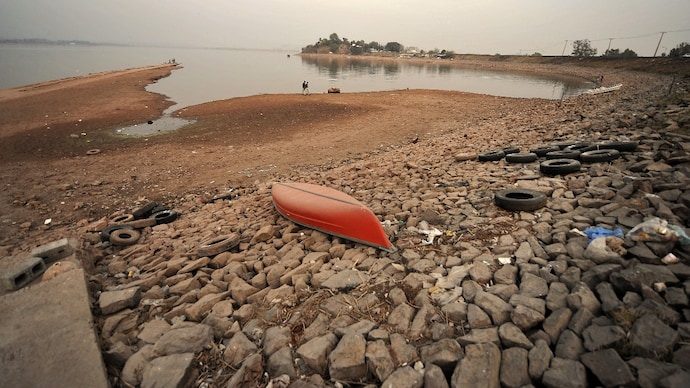The Indus Waters Treaty is more than just a technical water-sharing agreement. Unilateral withdrawal would not only breach international law but also expose South Asia to instability, legal battles, and humanitarian disasters. Diplomacy, mediation, and respect for international law remain the only viable paths forward.
The Indus Waters Treaty (IWT), signed in 1960, has long been hailed as one of the most successful water-sharing agreements in the world. Brokered by the World Bank, it managed to survive even through three wars between India and Pakistan.
However, India’s recent actions, including threats and moves to unilaterally suspend the treaty, have sparked grave international concerns.
A unilateral withdrawal from the treaty not only threatens regional stability but also risks damaging India’s own international credibility as a responsible state.
Brief History of the Indus Waters Treaty
After the partition of British India in 1947, the newly formed India and Pakistan found themselves in conflict over the control of river waters originating from India but flowing into Pakistan. Recognizing the possibility of a prolonged conflict, the World Bank stepped in to mediate.
After almost a decade of negotiations, the Indus Waters Treaty was signed on September 19, 1960, by Indian Prime Minister Jawaharlal Nehru, Pakistani President Ayub Khan, and the World Bank.
Can India Unilaterally Withdraw from the Indus Water Treaty?
No, India cannot legally and unilaterally cancel or withdraw from the Indus Waters Treaty. The treaty itself does not contain a withdrawal clause and specifies that any modification or termination must be based on mutual consent of both India and Pakistan.
Article XII of the treaty says:
“The provisions of this Treaty may be modified from time to time by a duly ratified treaty concluded for that purpose between the two Governments.”
Thus, unilateral withdrawal would amount to a clear violation of international law and treaty obligations.
India’s Cold Shoulder
In 2023 and 2024, after escalating tensions, India threatened to “maximize” the use of eastern rivers and slow down Pakistan’s access to water from the western rivers. India also initiated steps towards re-examining the role of the World Bank and disputing mechanisms under the treaty.
Many among Indian political figures including Amit Shah, Narendra Modi, and former Law Minister Ravi Shankar Prasad called for blocking or diverting the waters, an act that would have dire humanitarian consequences for Pakistan. In 2016, Prime Minister Modi uttered that blood and water can’t flow together.
He even ordered a review of the Indus Water Treaty. This is such a grave and provocative move under international norms and an act of weaponizing water in South Asia to halt the peace in the region.
Impact of Withdrawal on India Itself
India has long projected itself as a law-abiding, responsible international actor. Unilaterally violating a World Bank-brokered treaty would tarnish India’s global image.
Pakistan can approach the International Court of Justice (ICJ) or initiate proceedings at the Permanent Court of Arbitration, dragging India into lengthy and high-profile legal battles if it acts timidly and irresponsibly.
Other countries that have water treaties with India, like Bangladesh, Nepal, and Bhutan, might grow suspicious, viewing India as an unreliable neighbor.
India is already facing border issues with some of these states. For instance, the main dispute is over the Kalapani-Limpiyadhura-Lipulekh region, where both countries claim the same territory.
Instability in South Asia would discourage foreign investment and complicate India’s ambitions of becoming a regional economic hub. Blocking water flows to Pakistan is an act of war, potentially justifying retaliatory measures.
Pakistan’s economy is agriculture-based, with nearly 80% of its farmland dependent on Indus waters. Any disruption would trigger food security crises, damage livelihoods, create internal instability, and force Pakistan to consider drastic diplomatic, legal, or even military options.
Thus, manipulating the water supply would not just harm Pakistan economically but could easily escalate into a regional security crisis.
International Community’s Role
The World Bank, as a broker and signatory, must actively mediate and uphold the treaty’s sanctity. Major powers such as the US, China, and the EU should urge both sides to respect international commitments.
The UN could facilitate dialogue or, if necessary, set up emergency arbitration mechanisms to prevent escalation.
The Future of the Indus Waters Treaty
Whilst the Indus Waters Treaty is under unprecedented strain, it still represents one of the few remaining diplomatic bridges between India and Pakistan. Its collapse could unleash unpredictable consequences across South Asia.
Ideally, instead of confrontation, the two countries should update the treaty mechanisms to address new environmental realities such as climate change while preserving the fundamental water-sharing principles.
Conclusion
The Indus Waters Treaty is more than just a technical water-sharing agreement. Unilateral withdrawal by India would not only breach international law but also expose South Asia to instability, legal battles, and humanitarian disasters.
Diplomacy, mediation, and respect for international law remain the only viable paths forward. The global community must act swiftly and firmly to uphold the treaty and prevent water from becoming a weapon of war.
📍 English Language Educator | Blogger & Content Strategist | 7+ Years in Educational Blogging
Nosheen Bashir is a dedicated English teacher and experienced blogger with over seven years of expertise in content creation and educational writing. Passionate about language, literature, and effective communication, she combines her teaching experience with blogging skills to create insightful, research-backed content that helps learners and educators alike.
🔹 Expertise & Achievements:
✔ English Language Education: A skilled educator with years of experience in teaching English grammar, literature, and communication skills to students of varying levels.
✔ Educational Blogging: Running a successful blog for 7+ years, delivering well-structured, engaging content on language learning, writing techniques, and academic success.
✔ SEO & Content Strategy: Specializes in creating high-ranking, authoritative articles that follow Google’s EEAT principles, ensuring content that is both informative and search-friendly.
✔ Student-Centric Approach: Committed to making English easier, engaging, and accessible, helping readers and students improve their language proficiency.
🚀 With a passion for teaching and writing, Nosheen Bashir is dedicated to crafting educational content that empowers students, teachers, and language enthusiasts worldwide.










